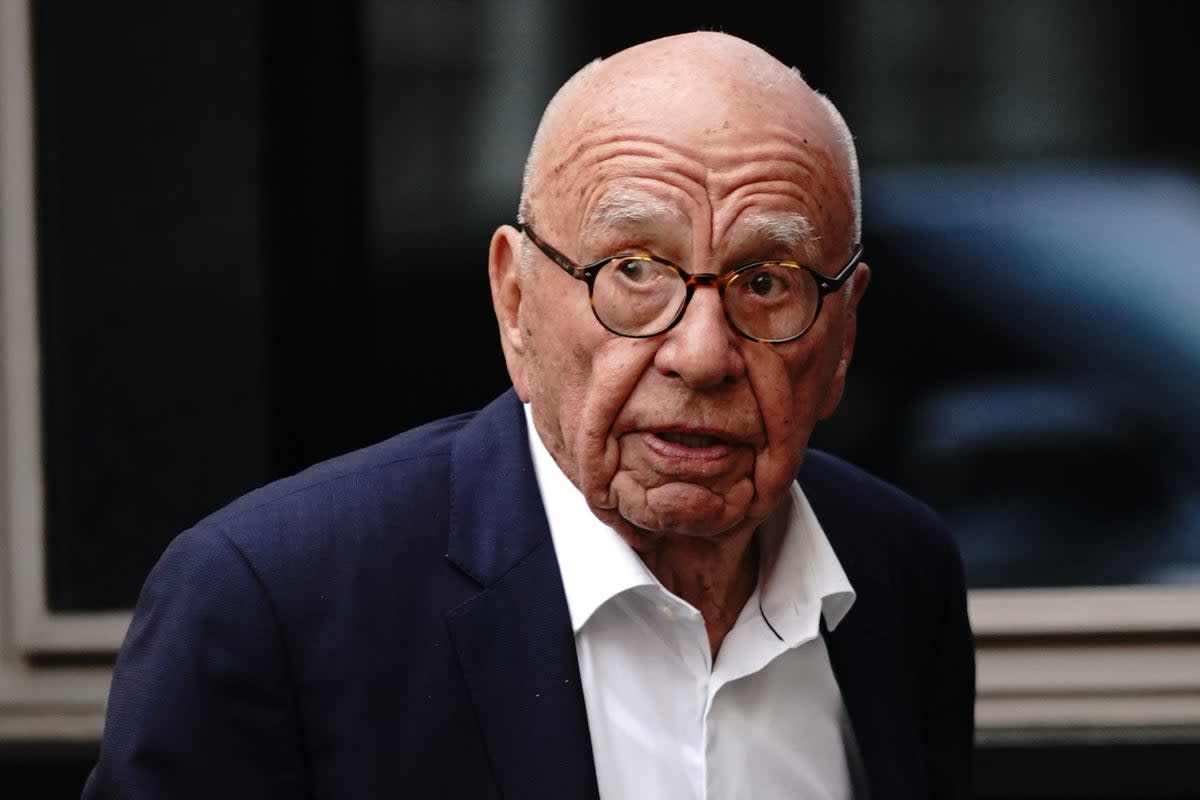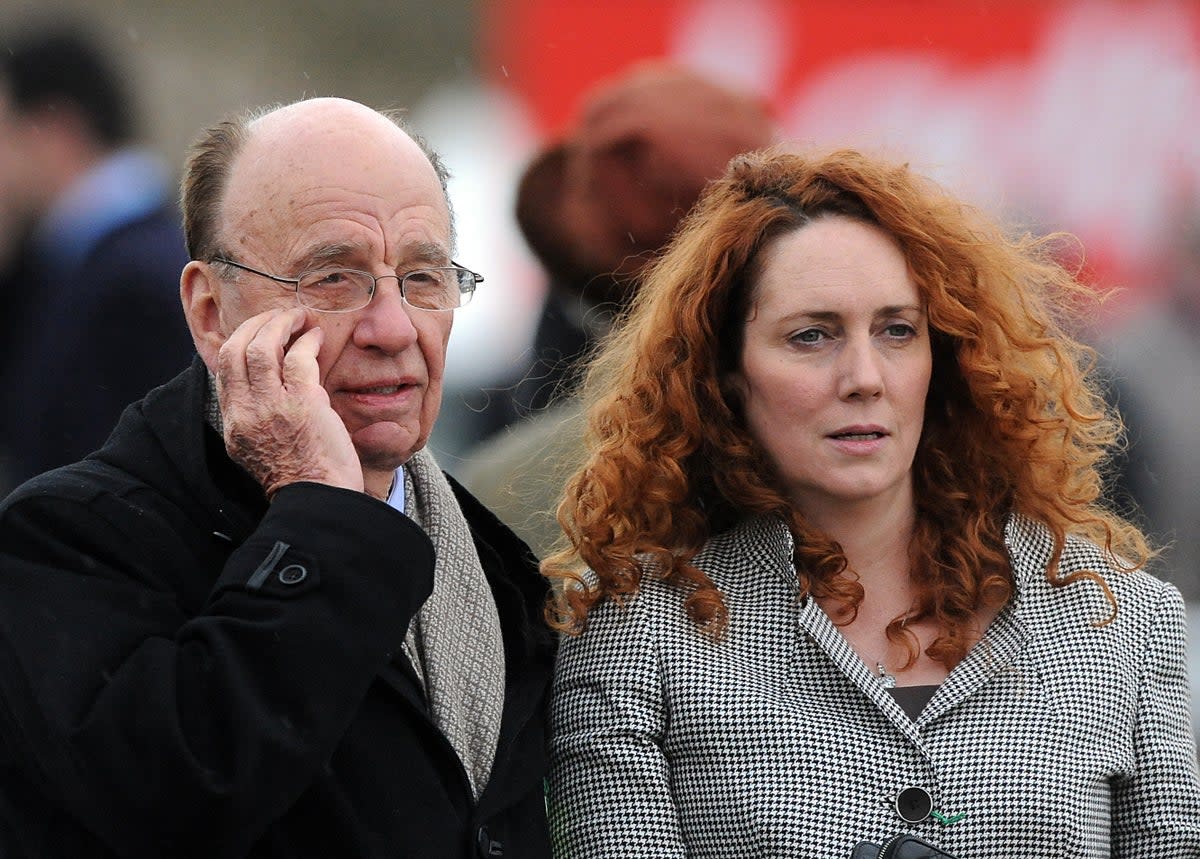Mr Bates vs Post Office-style series on phone hacking scandal in the works, says journalist who broke story

A new Mr Bates vs The Post Office-style series about the News of the World phone hacking scandal is in the works, an investigative journalist who first uncovered the story has revealed.
Journalist Nick Davies made the revelation on LBC this afternoon (8 May) amid the long-standing allegations that Rupert Murdoch’s News UK organisation hacked into the phones of celebrities during the 00s – before embarking on a widescale cover-up.
Following the damning revelations in 2009, Murdoch’s company accepted that journalists at News of the World were involved in phone hacking and the paper closed two years later, with damages paid to hundreds of victims. Those targeted included the murdered teenager Milly Dowler and celebrities such as Sienna Miller and members of the royal family.
Now, the journalist has revealed a series is already in production which TV bosses hope will grip the nation in the same way as the ITV series highlighting the plight of wrongly accused Sub-postmasters.
When asked whether a TV adaptation was in the works, Mr Davies said: “Yes, there’s a big TV drama project about the phone hacking being filmed at the moment.
“There’s some really brilliant people,” Mr Davies added. “One important thing is they’re filming and it takes ages to edit. I think you’re talking late next year at the earliest before this hits the screen.”

Meanwhile, Mr Davies also alleged that the scale of the cover-up of phone hacking continues to this day.
“All sorts of extraordinary new stuff has emerged,” he said today.
He added: “While we all know various journalists were hacking into the phones of famous people to get stories about their personal and sex lives, over on the other side of the Murdoch building, on the commercial side, somebody was hacking into the mobile phones of politicians not for stories, but for intelligence.”
Mr Davies claims that this information was being used to make money and interfere with politics, a revelation that he describes as “breathtaking in its arrogance”.
Civil court documents revealed last week showed News UK deleted emails at the time of the initial investigation, with 31 million emails lost between 2010 and 2011.
Nine million of those were “irretrievably lost”, with the publisher insisting that it was clearing out old computer servers rather than engaging in a corporate cover-up.
The revelation prompted former PM Gordon Brown to call for a new police investigation into whether the publisher covered up phone hacking.
Among the new documents are allegations that Mr Brown was involved in a conspiracy to obtain internal emails at the company, which led them to delete editor Rebekah Brooks’ emails to prevent further leaks.
This included allegations that Labour MP Tom Watson, who was close to Mr Brown, had been handling stolen data from Mrs Brooks and bribing an employee to get hold of emails.
In 2014, Mrs Brooks was found not guilty on all charges related to phone hacking after a trial at the Old Bailey, with prosecutors discovered no evidence of corporate wrongdoing at News UK in 2015.

Mr Davies revealed in a recent article for Prospect Magazine that while NGN “continues to insist that it has not engaged in destruction or concealment with the intention of covering up crimes”, there is evidence that it has done so.
He explains NGN has tried to justify the deletion of emails by claiming its servers were “overloaded”.
But during a raid of editor Rebekah Brooks’s office, police allegedly discovered “a private dressing room with a vanity cabinet. They moved the cabinet and found the door to an underfloor safe. When they opened it, they found it was ‘filled with hard drives and computers’.”
In another recent article for Prospect Magazine, Mr Davies adds that Murdoch’s company “bought silence” after destroying evidence of its alleged wrongdoing.
He claims that to avoid further scandal, senior journalists were paid off by the company so that its executives would not be implicated.
One of these people was Brookes, who has consistently denied knowing that journalists targeted the family of murdered schoolgirl Milly Dowler.
But David Sherborne, the counsel for the claimants currently suing the company, told the High Court: “We say Ms Brooks... was well aware of the Dowler story and the basis on which it was obtained.”
“It isn’t a story about journalists committing minor crimes,” Davies asserted of the new revelations, “it’s all about power and who uses it.”
The Independent has reached out to News Group Newspapers for comment.
